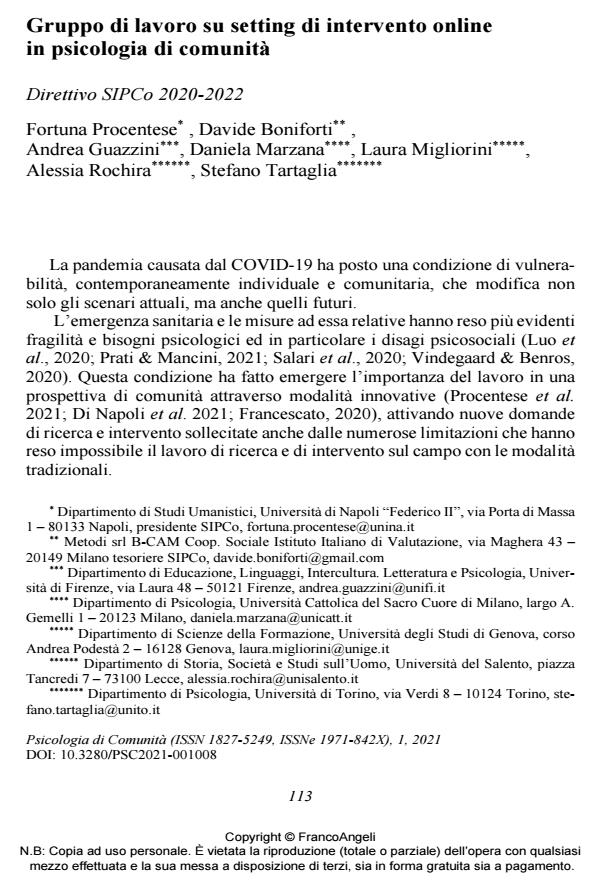Gruppo di lavoro su setting di intervento online in psicologia di comunità
Journal title PSICOLOGIA DI COMUNITA’
Author/s Fortuna Procentese, Davide Boniforti, Andrea Guazzini, Daniela Marzana, Laura Migliorini, Alessia Rochira, Stefano Tartaglia
Publishing Year 2021 Issue 2021/1
Language Italian Pages 10 P. 113-122 File size 170 KB
DOI 10.3280/PSC2021-001008
DOI is like a bar code for intellectual property: to have more infomation
click here
Below, you can see the article first page
If you want to buy this article in PDF format, you can do it, following the instructions to buy download credits

FrancoAngeli is member of Publishers International Linking Association, Inc (PILA), a not-for-profit association which run the CrossRef service enabling links to and from online scholarly content.
Fortuna Procentese, Davide Boniforti, Andrea Guazzini, Daniela Marzana, Laura Migliorini, Alessia Rochira, Stefano Tartaglia, Gruppo di lavoro su setting di intervento online in psicologia di comunità in "PSICOLOGIA DI COMUNITA’" 1/2021, pp 113-122, DOI: 10.3280/PSC2021-001008